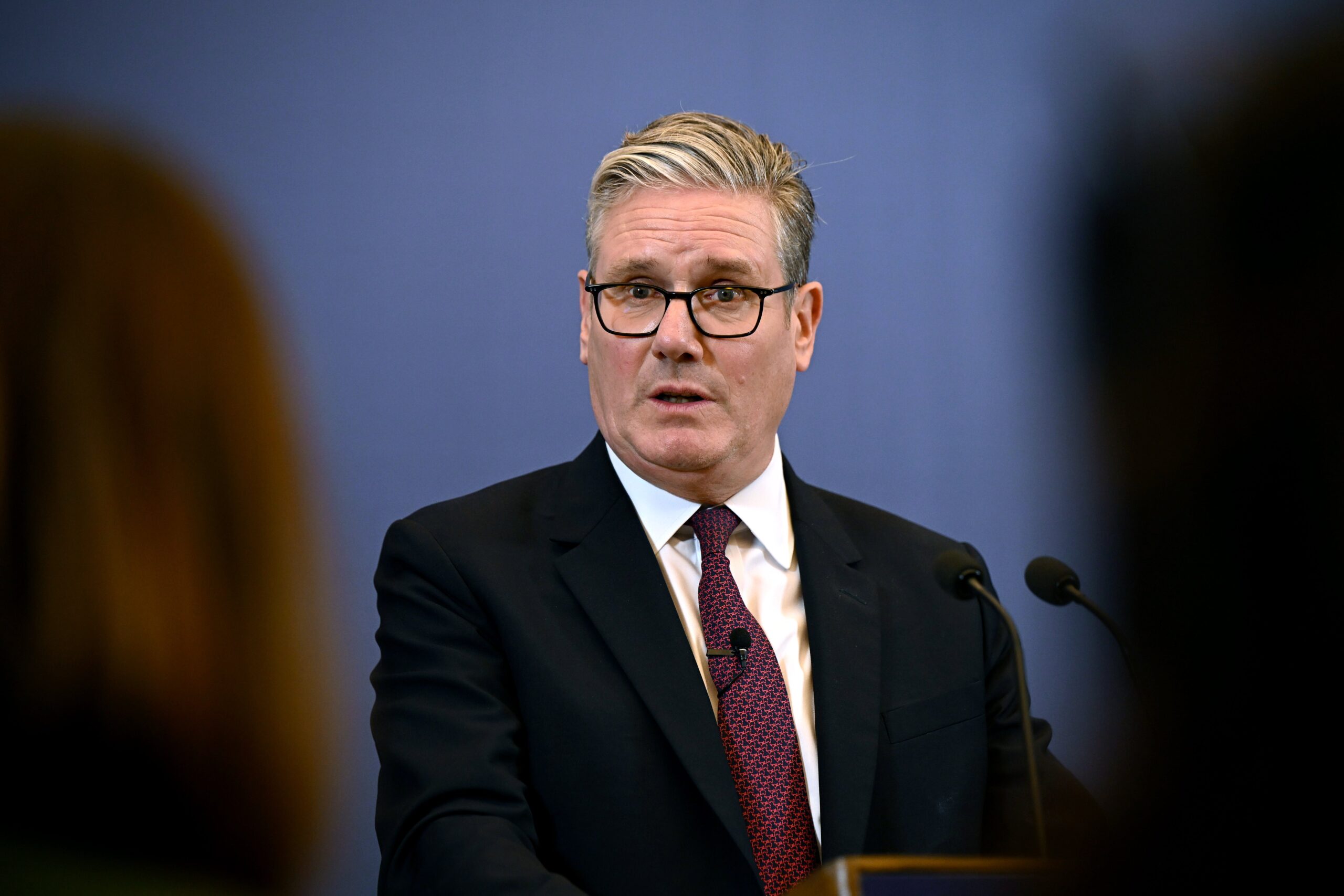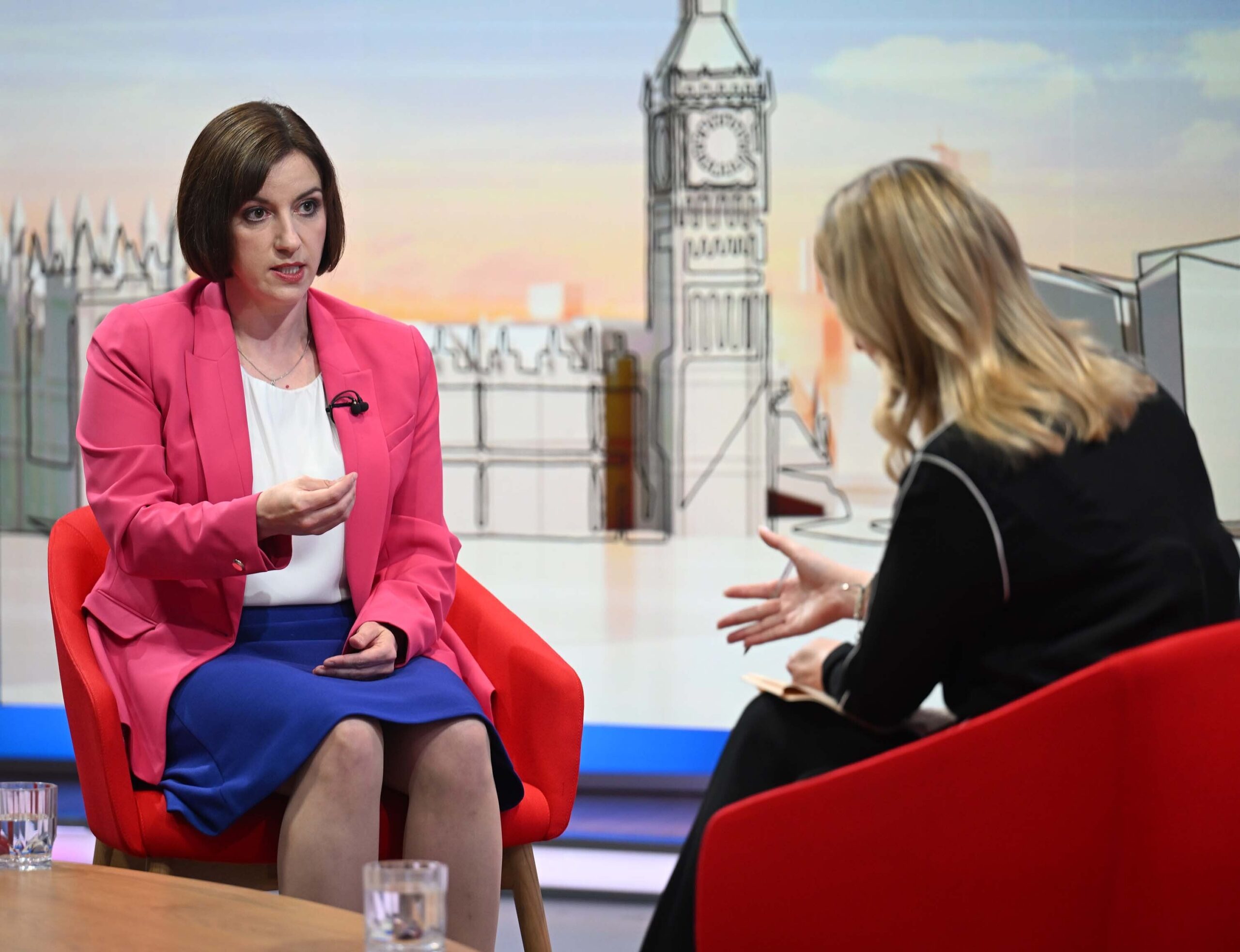Sir Keir Starmer is under fresh pressure to address “unanswered questions” over the China spy case controversy as the government was accused of being complicit in a “cover up” over the saga.
On the day MPs return to Westminster from conference recess, Kemi Badenoch has written to the prime minister calling for “clarity and honesty” and asking him to make a statement in Parliament over the collapse of a case against two men accused of spying for Beijing.
The intervention came as former security minister Tom Tugendhat described the collapse of the case as “absolutely abhorrent” and claimed the government is “willing to cover up the actions of a hostile state”.
There have been growing questions over the case, after the former chief of the Secret Intelligence Service said he is unsure why the prosecution against Christopher Cash, a former parliamentary researcher, and Christopher Berry, a teacher, was dropped and other former top civil servants raised alarm.

In recent days, the prime minister’s team has faced allegations that they had access to multiple documents that proved China was a national security risk but supposedly chose not to hand them over to the Crown Prosecution Service (CPS) before the case was brought to a close.
The prime minister has maintained the last Conservative administration had not designated China as a threat to national security, so his government could not provide evidence to that effect, which the director of public prosecutions (DPP) Stephen Parkinson said was required to meet the threshold for prosecution.
But the collapse of the case has raised questions about Britain’s willingness to confront China as Sir Keir’s government looks to build closer ties with the country.
The Conservative Party is now seeking an urgent question on the case, while Tory grandee and China hawk Sir Iain Duncan Smith was understood to have put in for an emergency parliamentary debate.
In a letter to the prime minister, who on Monday will be in Egypt attending a summit of world leaders on the Gaza peace plan, Mrs Badenoch said: “Your government’s account of what has happened has changed repeatedly.
“Instead of setting out the full facts before the House of Commons today, you are planning to travel to the Middle East.
“If you will not make a statement yourself, will you instruct a senior minister to clear things up once and for all through a full parliamentary statement? The public and Parliament deserve answers and transparency.”
Meanwhile, Mr Tugendhat told BBC Radio 4’s Today programme: “I think this is absolutely abhorrent action and I think the right thing to do is to have gone to trial, but the government appears to have decided that there are other reasons why the British people should not have the ability either to choose their own Members of Parliament or to allow those Members of Parliament to speak freely, but instead, is willing to cover up for the actions of a hostile state which is seeking to intervene in the freedoms of the British people.”
Britain’s most senior prosecutor has since said the case collapsed because evidence describing Beijing as a national security threat could not be obtained from Sir Keir’s administration.
Mrs Badenoch said ministers must say whether it was “still your government’s position to claim that it would have been impossible to argue that China was a threat in court”.
The Conservative leader also demanded answers to claims that national security adviser Jonathan Powell had discussed the case in a meeting last month.
The Sunday Times reported that the senior aide had revealed the government’s evidence would be based on the national security strategy, which was published in June and does not refer to China as an “enemy”.
The paper also quoted a source saying a minister was told during a call with a Cabinet minister around six weeks ago that the case was about to fall, with the accusation being “that Jonathan Powell in cahoots with the Treasury had been driving through that decision”.
But speaking to broadcasters on Sunday morning, education secretary Bridget Phillipson said Mr Powell, a diplomat and former chief of staff to Sir Tony Blair, played no role in the decision.

“Yes, I can give that assurance,” she told Sky News’s Sunday Morning With Trevor Phillips.
“We’re very disappointed that the CPS were not able to take forward the prosecution.”
Mr Parkinson said last week that the Crown Prosecution Service tried for “many months” to obtain the evidence it needed, but it had not been forthcoming from the government.
Mrs Badenoch asked the prime minister whether it was “still your argument that no minister knew anything of the government’s interactions with the CPS” over this time period.
The White House has also piled pressure on the government, with sources close to the Trump administration said to have concerns about the UK’s reliability following the dropping of charges.
Meanwhile, two former civil servants have also questioned Sir Keir’s explanation of how the case collapsed.
Lord Mark Sedwill, a predecessor to Mr Powell, expressed confusion about why the trial fell apart because Beijing was “of course” a threat to the UK, while former Cabinet secretary Lord Simon Case said intelligence chiefs had publicly warned of the threat from China for years.
The prime minister has blamed the Conservative administration in power at the time of the alleged offences between December 2021 and February 2023, suggesting “the only relevant evidence” would relate to this period.
Sir Keir pointed to the stated foreign policy position towards Beijing of the then-Tory government, which was to describe the country as an “epoch-defining challenge” rather than a threat.
“The evidence was the evidence as it then was, that’s the only relevant evidence, and that evidence was the situation as it was under the last government, the Tory government, rather than under this government,” he said last week.
“It’s not a party political point. It’s a matter of law. You can only try someone on the basis of the situation as it was at the time of the alleged offence.”
But former attorney general Dominic Grieve on Friday dismissed the government’s claims as “weird”, telling The Independent: “I can’t see why the PM was not in a position to ask the Cabinet Office to provide the evidence.”
And former MI6 chief Sir John Sawers said he is “a bit confused and unsure about why the prosecution was dropped”.
“Of course, China poses an intelligence threat, a subversion threat here in the UK, as well as being an economic partner”, he told Times Radio.
